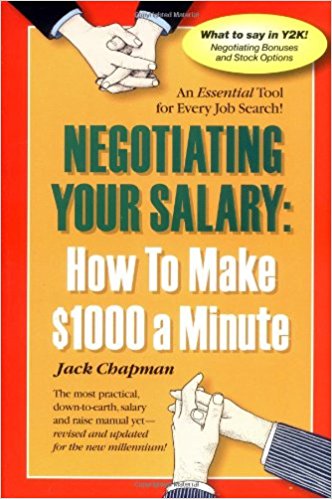How the things we own vary at different levels of net worth
Do people at different levels of wealth spend their money on different things? Of course they do.
Some of these differences are by necessity, of course. If you have a million dollars in net worth, for example, then even average spending on your weekly meals will make up a much smaller portion of your net worth than the same spending would for somebody who has a net worth of $10,000.
(To put it another way: If you have two families that both spend $100 per week on food, but one family has a net worth of $1,000,000 and the other family has a net worth of $10,000, then the wealthier family spends less than one-tenth of one percent of its wealth each week on food while the poorer family spends one percent of its wealth.)
When to buy cheap airline tickets
Although I fly several times per year, I'm not a sophisticated traveler. Many of my friends are top-notch travel hackers, but I'm just a beginner. Still, I'm getting better.
On my recent trip to Florida, for instance, I booked both my initial hotel and my rental car using travel miles. That's a big step for me! And it saved me from using actual cash, which is in short supply around these parts lately.
I didn't do such a good job with my airfare. I booked my flight for January 4th on December 5th. I paid cash. Luckily, thirty days in advance turns out to be in the sweet spot for finding cheap airline tickets, so I got an okay deal -- even if I didn't book the trip with points or miles.
Linchpin habits: Minimum effort for maximum results
A few weeks ago, I set a few goals for 2018, one of which was to run at least one mile every single day. Last week, that goal got derailed when I was diagnosed with pneumonia. The doctor ordered me not to run for at least ten days -- perhaps longer.
That's the bad news.
The good news is that I'm doing well with my other goals. I'm eating more plants. I'm reading for pleasure. And my alcohol consumption is way down.
Time is money: How frugality buys freedom — tomorrow AND today

Now, as a nearly fifty-year-old man who has written about personal finance for the past twelve years, I get it. Dad was right: Time is money — and money is time.
This notion is the central lesson of Your Money or Your Life, the personal finance classic by Joe Dominguez and Vicki Robin. "Money is something we choose to trade our life energy for," they write. "You are the one who determines what money is worth to you. It is your life energy. You 'pay' for money with your time. You choose how to spend it." Continue reading...
More on the value of negotiating
Earlier today, I shared some tips on salary negotiation. Learning to negotiate your salary is one of the best ways to boost your income -- not just in the present, but over the course of your entire career. In fact, one 2010 study found that failing to negotiate on your initial salary can mean missing out on over half a million dollars in your lifetime.
But negotiation is a skill that can be used for more than seeking a higher salary. In the words of master negotiator Herb Cohen, "You can negotiate anything."
- You can negotiate better prices on cars and on houses.
- You can negotiate better prices on furniture.
- You can negotiate on appliances (both large and small) and on electronics items.
- You can negotiate on your cable bill and on your medical bills.
- You can even negotiate with online retailers.
For a variety of reasons, a lot of folks in the U.S. hate haggling. They don't want to negotiate. If you're one of these people, that's fine. But you have to understand that by failing to negotiate, you're paying more than you need to.
How to negotiate your salary (and earn an extra half-million dollars in your lifetime)
Some folks claim that if you do what you love, the money will follow. Others say that a job is just a job — you're not meant to like it. The truth lies somewhere between these two extremes. There are few things worse than a job you hate; and many people enjoy fun, fulfilling careers while earning a good living.
Whatever the case, any job is more bearable if you're paid well. Plus, a high wage means more money to pursue your goals and dreams. One of the best ways to increase your income is at the source: during salary negotiations when you land a job.
Why You Should Negotiate Your Salary

How to find a job you love: Land a dream job that brings both joy and money


Sinetar is a proponent of what she calls Right Livelihood: Doing your best at what you do best.
"Each of us, no matter how ordinary we consider our talents, wants and needs to use them. Right Livelihood is the natural expression of this need," she wrote. "When we consciously choose to do work we enjoy, not only can we get things done, we can get them done well and be intrinsically rewarded for the effort. Money and security cease to be our only payments."
How to get out of debt (without gimmicks or games)

As part of back to basics month, let's use today to explore how you can get out of debt without gimmicks or games.
After twelve years of reading and writing about money, I've come to believe that debt reduction ought to be a side effect and not a goal. Getting out of debt is a target, not a habit. And, as we've been discussing recently, good goals are built around actions instead of numbers. If you restructure your life so that you're spending less than you earn, you will get out of debt. It's a natural side effect.
Having said that, I realize that a lot of GRS readers are struggling to get to square one. Getting out of debt is their goal and primary obsession. That's okay.
Developing self-reliance: Personal empowerment lessons from 1951
Earlier this week, I encouraged readers to become proactive by developing an internal locus of control. In that article, I wrote:
You are the boss of you. You don’t need anybody’s permission to get out of debt or to buy a house or to ask for a raise. And nobody’s going to come to you out of the blue to explain investing or health insurance or your credit card contract. Take charge yourself.
"I get it," you might be thinking. "Self-reliance is great. But how do I change? How do I get from where I am to becoming a more self-reliant person?"
<How to shop for high-quality clothes

I'm in Florida for ten days to attend a couple of weekend early retirement retreats. At Camp FI, about 50 or 60 people gather for three days of what Mr. Money Mustache calls "crazy rich people talk" -- real estate investing, travel hacking, gift card arbitrage, 70% saving rates, and the rewards of frugality and thrift.
One afternoon, the conversation turned to clothing. Given that so many people in the room had a net worth of more than a million dollars, a surprising number of us still bought our clothes at thrift stores.
https://www.youtube.com/watch?v=QK8mJJJvaes
